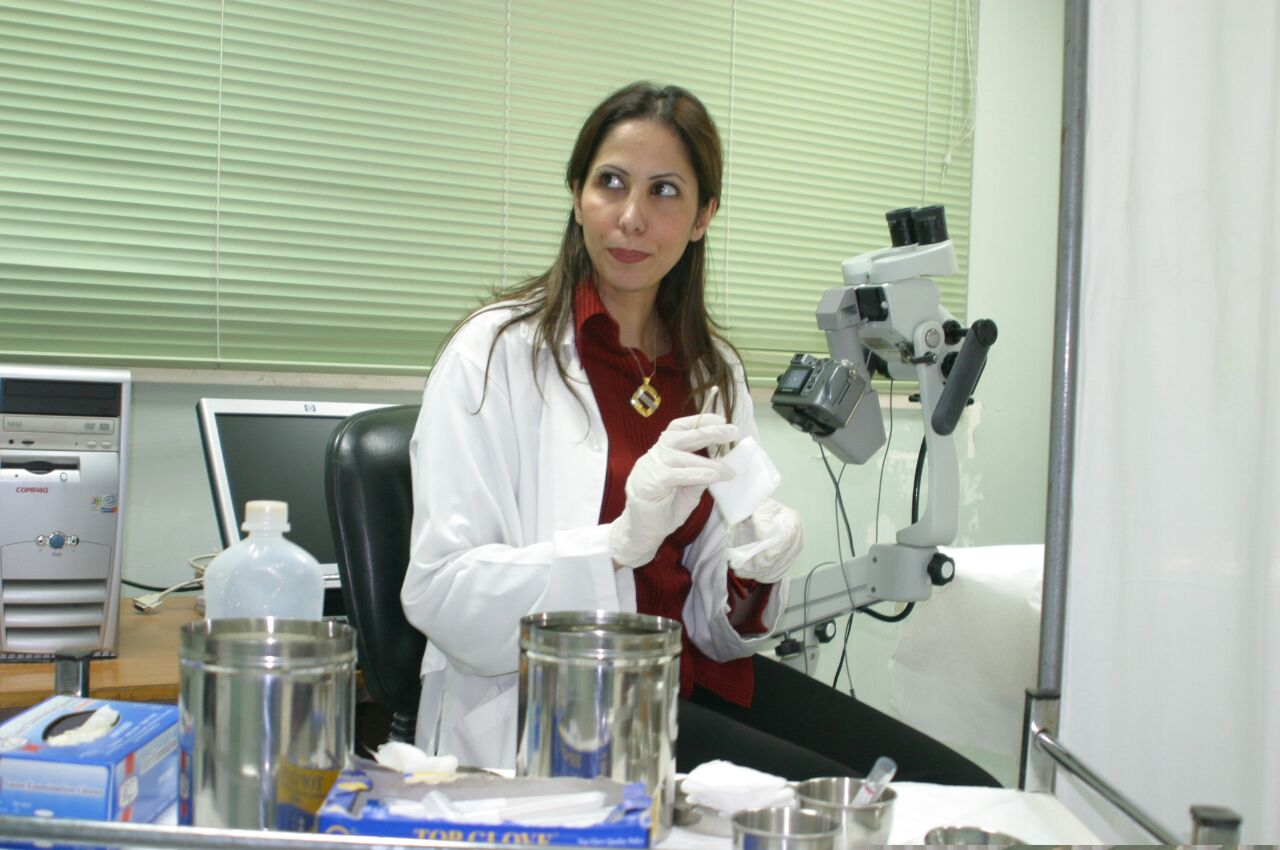Like this article? rabble is reader-supported journalism. Chip in to keep stories like these coming.
The committee and its members were at the morgue while the prosecutor had to make sure that they would testify under oath in front of him.
The incident is fresh in the memory of Dr. Isra Tawalbeh, forensic pathologist at Jordan’s National Institute of Forensic Medicine. She is Jordan’s first female forensic doctor.
“When he [prosecutor] was inside and he saw the dead bodies, he started to feel drowsy,” Tawalbeh recalls. “He said: ‘I can’t stay anymore. Swear quickly and I will go.’ So, we swore and then he left with a pale face.” However, being at the morgue is part of Tawalbeh’s job.
Women in several communities are often told that their emotions make them incapable of performing tasks such as being in the forensic field. “Many men can’t do this job and a lot of women are able and are trying to make it,” says Tawalbeh.
With her piercing eyes and warm smile, Tawalbeh insists that a woman can be successful in any job she chooses. “I want to say something important: It’s not a woman issue; it’s a human issue,” affirming that a woman could perform better, even if she is not taking a culturally feminine job.
While stirring the mug to let toffee syrup find its way into her latte, Tawalbeh remembers the time when she decided to become a forensic doctor. “I am not a person who will do the job because I have to,” says Tawalbeh. “I want to do it because I want to find myself.”
Upon graduating from medical school, she was not satisfied by the role she would take as a doctor in any other specialty. Tawalbeh wanted to have a job that helps her in achieving justice for people, especially victims.
“I thought that when I study law in university, I would have such a role,” says Tawalbeh. But soon, she found what she wanted. “There are no women at all. And no woman tried to apply,” said Dr. Momen Hadidi, director of National Institute of Forensic Medicine, to Tawalbeh when she mentioned to him her plans to be in the field.
“I said: ‘it’s okay. Is this a reason to refuse me?’ He said: ‘no, this is a reason to accept you because we need you’,” mentions Tawalbeh. She believes that her career is the bridge between law and medicine.
Fearless
Every time I meet Tawalbeh, I think about her job. At any time she could be at a crime scene or morgue; she would be tirelessly examining victims. Tawalbeh is also responsible for Family Protection Department Clinics in Jordan.
Her phone rings and other doctors ask for her help. Journalists and media professionals interview her. Tawalbeh is a busy woman. She is the only Muslim female forensic doctor in Jordan. This means that she examines cases from everywhere and anywhere in the Kingdom. Being a forensic doctor means that she takes a big role in having a say regarding people’s destiny. However, she seems fearless.
It’s a human nature to have fears, although they vary from individual to another. Tawalbeh is not entirely free of fears. “I have one fear: to write a report and to feel that it was unfair for the victim, but not in intentional way,” she says. “I try to do my best to keep my emotions away. I always try to be very professional and very strong.”
Regardless, dealing with cases that involve children subjected to violence is what Tawalbeh feels the most difficult. “Inside me, I usually feel anger. Not anger. Volcano that will burst,” she says. “My tolerance for such cases are very difficult but I always try to hold myself. I remind myself that I am professional and unbiased person and to write a report in logical way based on evidence.”
In a crime case or if dealing with victims of physical abuse, there seems to be no happy end to the story. However, that’s not how Tawalbeh believes. “Each case ending by justice, and my report was one strong evidence, it’s a happy-ending story even if the victim is dead,” she says.
‘I prove it wherever I go’
Thirteen years ago was the time when Tawalbeh set her foot at forensic centre in Al-Bashir hospital on March 16, 2003. If time repeats itself, she will take the same decision. “The first day for me as a forensic doctor, I have the same feelings, same courage, same spirit, same aim as now,” says Tawalbeh. “When I started my residency program my colleagues — all men — were wondering: ‘we will give you one month, then you will leave’.”
Tawalbeh combats stereotypes by pursuing to change society’s perspectives on the role of women. She recalls incidents at crime scenes. “They say: ‘we are waiting for forensic doctor. Where is he?’ I say: I am the forensic doctor.’ They say: ‘are you?'” mentions Tawalbeh. “I want them to turn their eyes away from my look as a female to my mind as a forensic pathologist doctor: not male, not female,” she says. “Until now, I am successful.”
Whether it’s in a police station, a class or court, being a woman in this field is not the norm. But Tawalbeh fights back by being professional. “I prove it wherever I go, especially in the court; they are always waiting for what I will say during my testimony while I am testifying,” she continues.
“I believe that women can do everything. A strong woman can even do anything by herself without support,” says Tawalbeh. “There is always a saying that behind any great man is a great woman. But I say that behind any great woman is herself.”
This Project was carried out with the aid of a grant from the International Development Research Centre (IDRC), Ottawa, Canada.
Like this article? rabble is reader-supported journalism. Chip in to keep stories like these coming.



